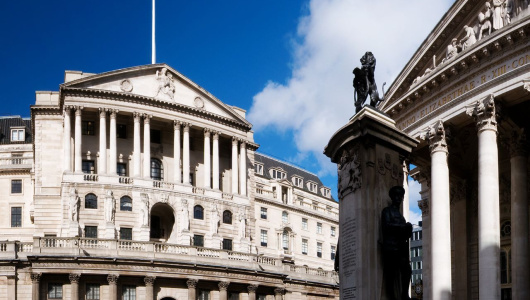There is a “possibility” that chancellor Rachel Reeves may create a new tax for the Budget on 30 October.
This is what Barnett Waddingham self-invested pensions technical specialist James Jones-Tinsley told Money Marketing.
“There is a lot of precedent that this may happen,” says Jones-Tinsley, and as Reeves is early into her career as chancellor she could be “experimental”.
Jones-Tinsley predicts that the new tax would be likely to target the ultra-wealthy who traditionally vote Conservative.
Still, a new tax brings with it a lot of “unprecedented” changes as well as legal challenges as ultra wealthy people tend to have lawyers, Jones-Tinsley says.
The creation of a new tax depends on how bold Reeves is and how much of the “black hole” is left to fill.
In July, Reeves vowed to “fix the foundations of our economy” and aimed to plug a reported £22bn black hole.
This announcement was made in response to the findings of the Treasury’s internal audit of public finances.
The audit showed a £22bn gap between tax revenues coming in and expected spending.
She accused the previous government of “covering up the true state of the public finances”, although the Conservatives argue that she would have been aware of this before taking office.
Jones-Tinsley believes that Labour were expecting a “black hole but not of that magnitude”.
Regarding the possibility of a new tax, the “devil will be in the detail” but it many not be the panacea the chancellor is hoping it will be.
However, she has to “fill the black hole quickly” and the Labour manifesto pledged not to increase national insurance, income tax or VAT.
As a chancellor with “limited options available to her without breaking manifesto pledges”, a new tax could be possible.
Jones-Tinsley added: “If she had the chance to rewrite the manifesto pledges, she would most likely want to make some changes.”
Jones-Tinsley made these comments as a majority (87%) of clients working with Independent Financial Advisers (IFAs) are anxious about the upcoming Budget.
According to a survey from Opinium, almost half (47%) expressed significant unease.
Top concerns include the possible scrapping of the 25% tax-free lump sum accessible at the age of 55 (70%), changes to capital gains tax rates (44%) or inheritance tax (47%), and potential pension reforms (54%).
The anxiety surrounding these areas has led to an increase in requests for advice (50%), as individuals seek reassurance on how to prepare for potential changes to the financial landscape.















The only thing that is not taxed at the moment is, I believe – breathing. Living is taxed, death is taxed, so there really isn’t much left to tax.
Potentially if they taxed breathing would it be both an input tax (breathing in) and output tax (breathing out). Would you also get a tax credit for any period when you aren’t breathing.